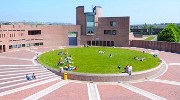What is UNESCO?
Today, UNESCO's message has never been more important. We must create holistic policies that are capable of addressing the social, environmental and economic dimensions of sustainable development. This new thinking on sustainable development reaffirms the founding principles of the Organization and enhances its role:
- In a globalized world with interconnected societies, intercultural dialogue is vital if we are to live together while acknowledging our diversity.
- In an uncertain world, the future of nations depends not only on their economic capital or natural resources, but on their collective ability to understand and anticipate changes in the environment - through education, scientific research and the sharing of knowledge.
- In an unstable world - marked by fledgling democratic movements, the emergence of new economic powers and societies weakened by multiple stress factors – the educational, scientific and cultural fabric of societies – along with respect for fundamental rights - guarantees their resilience and stability.
- In a connected world - with the emergence of the creative economy and knowledge societies, along with the dominance of the Internet, the full participation of everyone in the new global public space is a prerequisite for peace and development.
UNESCO is known as the "intellectual" agency of the United Nations. At a time when the world is looking for new ways to build peace and sustainable development, people must rely on the power of intelligence to innovate, expand their horizons and sustain the hope of a new humanism. UNESCO exists to bring this creative intelligence to life; for it is in the minds of men and women that the defences of peace and the conditions for sustainable development must be built.
http://en.unesco.org/ for further information






